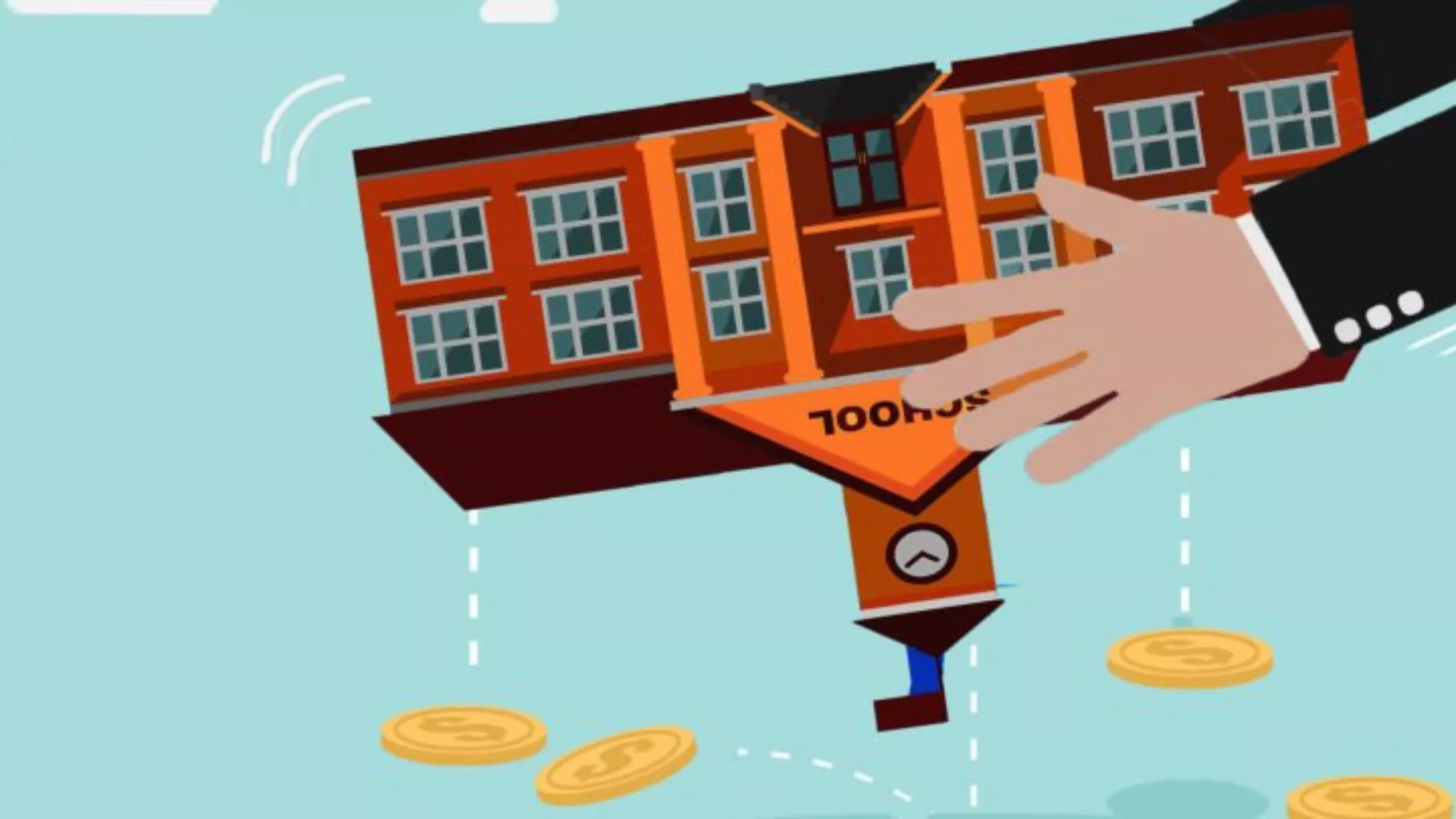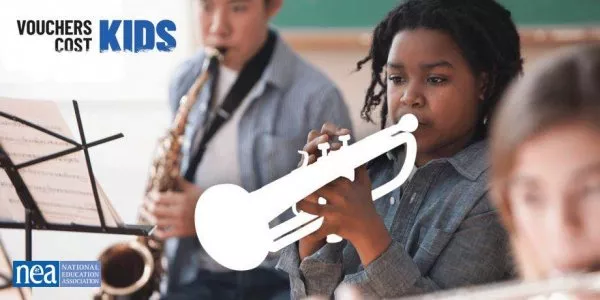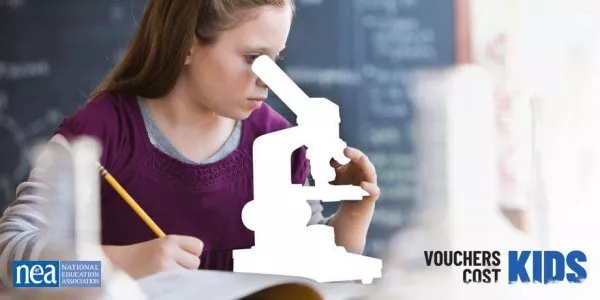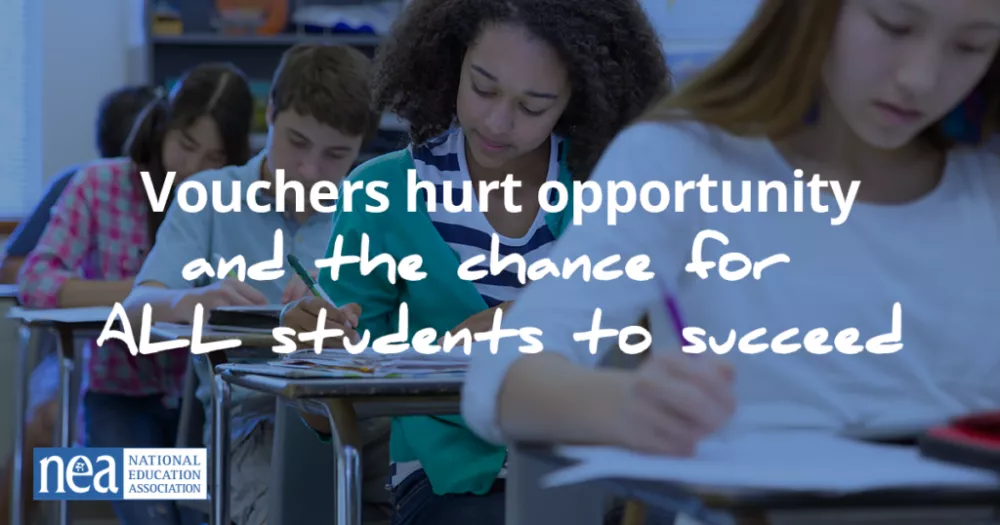No matter how you look at it, vouchers undermine strong public education and student opportunity. They take scarce funding from public schools—which serve 90 percent of students—and give it to private schools—institutions that are not accountable to taxpayers.
This means public school students have less access to music instruments and science equipment, modern technology and textbooks, and after-school programs.
Moreover, there is ZERO statistical significance that voucher programs improve overall student success, and some programs have even shown to have a NEGATIVE effect for students receiving a voucher.
Furthermore, vouchers have been shown to not support students with disabilities, they fail to protect the human and civil rights of students, and they exacerbate segregation.
Rooted in Segregation and Racism
Vouchers were first created after the Supreme Court banned school segregation with its ruling in Brown v Board of Education. School districts used vouchers to enable white students to attend private schools, which could (and still can) limit admission based on race. As a result, the schools that served those white students were closed, and schools that served black students remained chronically underfunded.
The pattern of discrimination continues with vouchers today. Unlike public schools, private schools can (and some do) limit their admission based on race, gender, sexual orientation, ability, and any other number of factors. Furthermore, vouchers rarely cover the full tuition, so families who were promised a better education are left footing the bill.
If we’re serious about doing what’s right for every child’s future, let's do what works: support public schools so that every student has inviting classrooms, modern technology and textbooks, and class sizes that are small enough for one-on-one attention.
Types of Vouchers
Voucher programs can take different forms from state to state. These programs hide behind euphemisms such as “Opportunity Scholarships,” “Tax Credit Scholarships,” “Education Savings Accounts,” and “Tuition Tax Credits,” but they all function the same way. Public funds intended for public schools are diverted to private schools.
Facts About Vouchers
Facts About Vouchers
There's no link between vouchers and gains in student achievement
Vouchers undermine accountability for public funds
Vouchers do not reduce public education costs
Vouchers do not give parents real educational choice
Use Your Educator Voice.
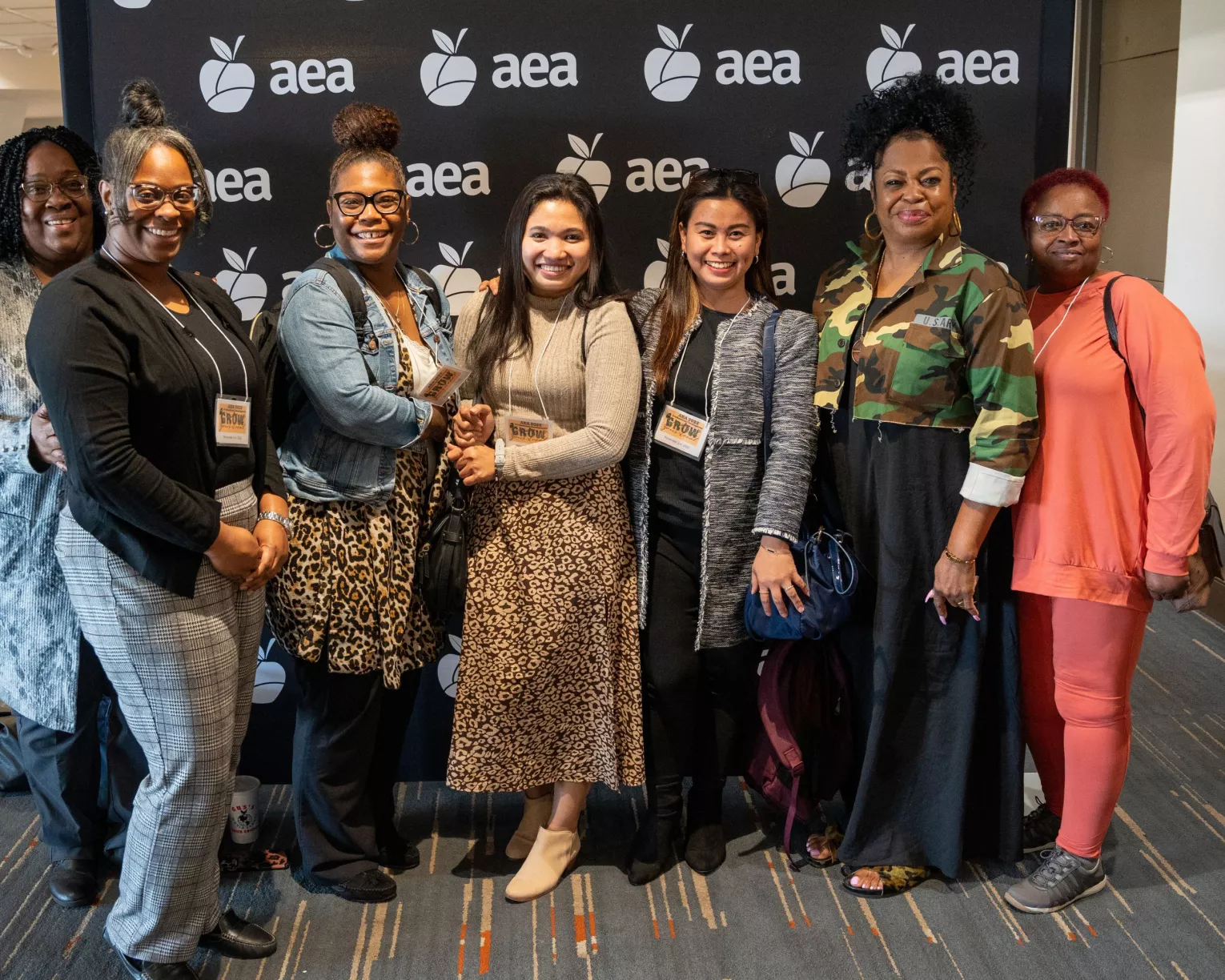
Active anywhere decisions impact our students.
From the School Board to the Statehouse, AEA members make our collective voice heard on a host of issues that impact our students, educators, and communities.
Learn more about what we're doing to improve the lives of our students, educators, and families.
